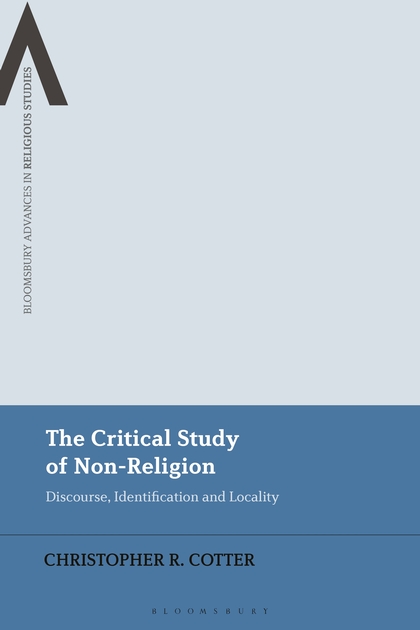An Online Summit and a Concert
Hi folks. September to January was an incredibly busy time for me, and lots of the spinning plates started to wobble dangerously and/or break. But, everything has calmed down a little bit for me now as I continue lecturing at the University of Chester, tutoring at the University of Edinburgh, and working on my research fellowship at the Institute for Advanced Studies in the Humanities. I have a few long overdue writing commitments to turn my attention to, and much overdue promotion to do for The Critical Study of Nonreligion.
However, I wanted to alert you to a couple of FREE upcoming events where you can hear me sing/speak.
The first is a 4-day “pod-conference” around spirituality, meaning, and connection in the secular world, running 25-28 February. I am one of the guest speakers, alongside many, many more worthy contributors, including my fellow RSP co-founder David Robertson. Registration is free, and many of the talks (mine included) are pre-recorded and available to listen to at your leisure. Do check it out.
The second is an online musical theatre concert – again, pre-recorded so you can watch and listen in your own time, without having to worry about any live-streaming issues. The programme is coming together nicely and, all being well, you should catch me singing a solo, a couple of duets, and in a couple of group numbers.
‘Coming Home Again’ Digital Concert premieres on 27 February and will be available until 3 March. Tickets are available here and are free of charge, or with an optional donation to Cosmos theatre company. 20% of anything raised from this project will be donated to Capital Theatres, Edinburgh and the remaining amount will go towards putting on a production later in the year.

More from me sooner rather than later… I hope!
The book is finally here! The Critical Study of Non-Religion, out next week
 I’m delighted to announce that my first sole-authored book, The Critical Study of Non-Religion, is being published in hardback on 6 August! This book represents the culmination of over a decade of empirical study of people and groups who might be considered ‘non-religious’, and acts as a bridge between critical academic study of religion and more substantive ‘lived’ approaches. You can already purchase the book on Kindle (and even get a free preview of the introduction) and it should be coming out in paperback in a year or so (if that £76.50 price tag puts you off). I’ll try and write a few more posts in the coming weeks, but in the meantime please seek it out if you have the means, and let your institutional libraries know if you’d like it to make an appearance on the shelves. For now, here are some of the wonderfully supportive reviews:
I’m delighted to announce that my first sole-authored book, The Critical Study of Non-Religion, is being published in hardback on 6 August! This book represents the culmination of over a decade of empirical study of people and groups who might be considered ‘non-religious’, and acts as a bridge between critical academic study of religion and more substantive ‘lived’ approaches. You can already purchase the book on Kindle (and even get a free preview of the introduction) and it should be coming out in paperback in a year or so (if that £76.50 price tag puts you off). I’ll try and write a few more posts in the coming weeks, but in the meantime please seek it out if you have the means, and let your institutional libraries know if you’d like it to make an appearance on the shelves. For now, here are some of the wonderfully supportive reviews:
Christopher R. Cotter’s interview subjects make it plain that identifying as religious, and, as he importantly argues, nonreligious or even indifferent to it all—is an act of identification taking place in a hectic social world. Cotter invites us to hear all of these claims as tactics by which social actors position themselves in relation to others, making The Critical Study of Non-Religion a coming-of-age moment for one of the discipline’s newest subfields. – Russell T. McCutcheon, University Research Professor and Chair, Department of Religious Studies, University of Alabama, USA
An exceptional combination of textbook and original empirical study outlines the field of non-religion and shows the situational and contextual nature of our religion-related categories. It argues convincingly that non-religion studies would benefit from moving towards a critical discursive approach that does not reify non-religion as anything substantial. – Teemu Taira, Senior Lecturer, Study of Religion, University of Helsinki, Finland
Christopher Cotter’s The Critical Study of Non-Religion is an intelligent and innovative study of the porous boundaries between religion and non-religion, which charts a path through the complex interrelations of family, community and individual identity and how these interact with ideological blocs in society, such as nationalism, politics and religion. Cotter insightfully deconstructs monolithic notions of non-religion and demonstrates the overlaps and grey areas that exist between certain religious people and certain non-religious people, in the areas of assumptions, beliefs and praxis. – Carole M. Cusack, Professor of Religious Studies, The University of Sydney, Australia
Review: (Un)Believing in Modern Society
This is the submitted version of my review of (Un)Believing in Modern Society, accepted for publication in Modern Believing 61:1.
 (Un)Believing in Modern Society: Religion, Spirituality, and Religious-Secular Competition
(Un)Believing in Modern Society: Religion, Spirituality, and Religious-Secular Competition
By Jörg Stolz, Judith Könemann, Mallory Schneuwly Purdie, Thomas Englberger, Michael Krüggeler
(Un)Believing in Modern Society is an ambitious book, rooted firmly in the Swiss context, and making make use of numerous large-scale social surveys and over seventy qualitative interviews to add nuance to and challenge secularization, individualization and market theories of religion. The authors provide a typology, a theory and a thesis to identify types of people in society, what their common beliefs, values, practices etc are, their relationships to various religious suppliers, and to map and explain how these types have changed in the past few decades.
The book begins with three chapters outlining the parameters of the ‘me-society’ – namely the freedom and obligation of individuals to choose and take responsibility in all areas of their lives – a theory of religious-secular competition, and an overview of four broad types of (un)belief. Chapters 4–9 then present a closer look at the utility of these types in relation to ‘Identity and Social Structure’, ‘Belief, Knowledge, Experience and Action’, ‘Values and Change of Values’, Religious and Spiritual Suppliers, ‘The Perception and Evaluation of Religion(s)’ and ‘Changes in Religiosity, Spirituality and Secularity’. A concluding chapter reflects on the ‘so what?’, before offering some predictions for the future.
The typology consists of ‘institutional’, ‘distanced’, ‘alternative’ and ‘secular’ types, which are further subdivided into: ‘evangelicals’ and ‘established’; ‘distanced institutional’, ‘distanced alternative’ and ‘distanced secular’; ‘esotericists’ and ‘Sheilaists and alternative customers’; and ‘indifferent’ and ‘opponents of religion’ (52). Provided one accepts the premises of the model the diagrams with axes of low to high ‘alternative spirituality’ and low to high ‘institutional religiosity’ are remarkably easy to follow and, combined with in-depth discussion and empirical examples, help the authors succeed in their goal of nuancing and advancing existing sociological theory.
A key message is that the different types use terms differently, think and act differently, and would require different stimuli to move between types. Dialogue between types will thus often result in talking past each other. Concepts of God are different. Understandings of practice differ, as does the salience of particular identifications. Crucially, understandings of ‘religion’ and ‘spirituality’ are wildly different between types, and problems occur when it is assumed that the same things are being done or said. Furthermore, each type is imbued with the characteristics of the ‘me-society’, yet to quite different effect in each case.
Other key findings include a nuancing of the notion of vicarious religion, a critique of market theory, and some clarity on the perception of non-Christian religions in Switzerland. On vicarious religion, the authors note that most of the population recognize churches and religion as potential sources of relief, but not for themselves. Churches are a public good that is not needed by the individual but might be needed at some future hypothetical point (128-9). On market theory, it is argued that existing approaches only consider intra-religious competition but neglect secular options. Given that ‘Most members of society… belong to the distanced type [57.4%, they…] do not see why they should switch suppliers if they are in any case only members in a very weak way’ (128). And on non-Christian religions, ‘the perception of non-Christian religions is strongly linked to issues related to foreigners, asylum seekers and Swiss identity.’ Yet also it is clear that ‘a critical attitude towards foreigners and Muslims [is] ‘socially undesirable’’ (148). Buddhism and the Reformed Church tend to come off best because they are not perceived to challenge the established order and freedom of the individual. Roman Catholicism and Islam are seen as impinging too heavily upon society and individual freedoms. Each of these findings is not new per se but are given more explanatory weight and nuance through the authors’ typology and model of religious-secular competition. The authors conclude with an important and well-evidenced prediction: ‘established’ religion – in Switzerland at least – will shrink (die off), ‘alternative’ will hold its own (but remain relatively small in number), ‘distanced’ will shrink and the ‘secular’ will become largest group.
Naturally, there are plenty of criticisms that can be levelled at the broad theorizing this book presents. The data on alternative spirituality is somewhat limited, the text builds from the perspective of individuals, neglects non-Christian religions, and is restricted to the Swiss context (194). Furthermore, the authors’ definition of religion (23) is quite ‘traditional’ and implies that individuals cannot be religious without relation to a specific, established tradition – defensible, perhaps, but contestable. However, the sheer volume of data, the generosity of spirit, and the nuancing of existing sociological theories make this a must read for anyone with an interest in the current state of religion in Europe – and explanations for why this is the case.
A Plea and a Song…
From 16-20 January 2018, I am performing as Mark Cohen in the musical “RENT” in Edinburgh. Please consider coming along (and booking in advance). I’ve recorded a video in which I speak a little bit about my feelings on the show, and sing one of my numbers. I’ve posted it below.
https://www.edinburghlittletheatre.com/rent
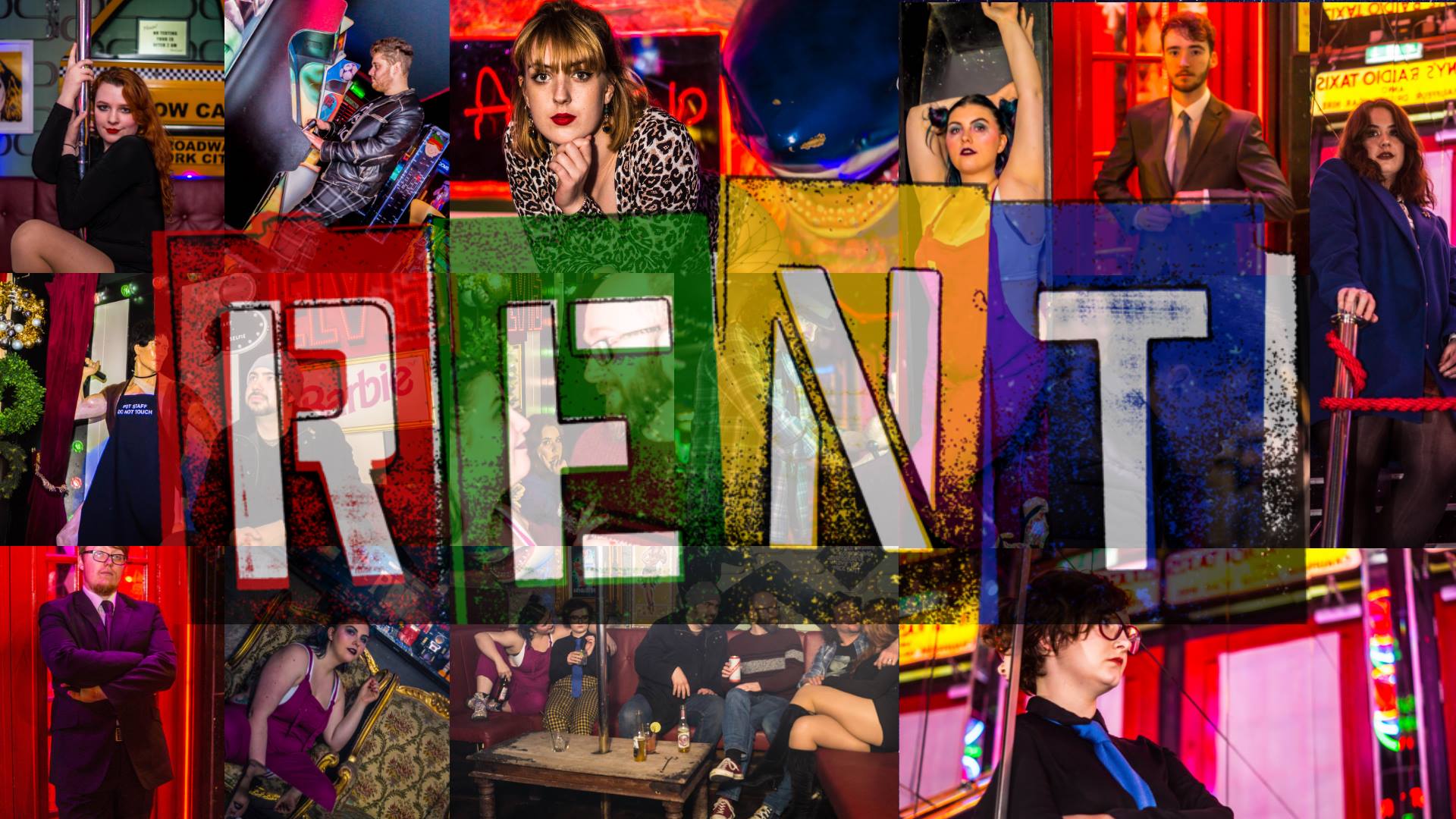
 I can remember a decade or so ago, when a few of my friends and associates were involved in a production of RENT, I didn’t really ‘get it’. Now I do. The music is great, the characters are well-developed, and it is a true ensemble piece. It is based on Puccini’s opera “La Bohème” and speaks to so many themes that are of great importance to me, and should be to the world. It has been a real pleasure getting to know a largely new group of people and to now call them my friends. Please come along if you can, reward us for our hard work, experience this emotional roller-coaster, and support me in one of my biggest stage roles to-date. Thanks!
I can remember a decade or so ago, when a few of my friends and associates were involved in a production of RENT, I didn’t really ‘get it’. Now I do. The music is great, the characters are well-developed, and it is a true ensemble piece. It is based on Puccini’s opera “La Bohème” and speaks to so many themes that are of great importance to me, and should be to the world. It has been a real pleasure getting to know a largely new group of people and to now call them my friends. Please come along if you can, reward us for our hard work, experience this emotional roller-coaster, and support me in one of my biggest stage roles to-date. Thanks!
The Good, the Bad, and the Non-Religion
Another one of my videos, built off a couple of conference papers, in which I present and analyze the problematic rhetoric of ‘good’ and ‘bad’ religion in the academic study of ‘non-/religion’… and why this matters. I also couldn’t resist getting some Bad Religion in there…
The conference in October was ‘Research in Religion’ in Edinburgh, 20 October 2018, https://researchinreligion2018.wordpress.com/
The original conference in Bonn was “Hijacked! A Critical Treatment of the Public Rhetoric of ‘Good’ and ‘Bad’ Religion” from 7-11 June 2017, https://www.fiw.uni-bonn.de/religionsforschung/forschungsprojekte/konferenz-hijacked
The abstract from October reads as follows:
The Good, The Bad, and the Non-Religion: The Public Rhetoric of Good/Bad ‘Religion’ in Academic ‘Non-/Religious’ Studies
The first decades of the twenty-first century have seen a rise in what Aaron Hughes has dubbed the ‘rhetoric of authenticity’ in public discourse about religion, whereby ‘good religion’ which is ‘egalitarian, progressive, pluralistic, democratic, and so on’ is constructed as ‘the real or authentic version’ and set against its dichotomous opposite, ‘bad religion’ (2015, xiv–xv). This dubious rhetoric – particularly popularized in the political sphere by former UK Prime Minister Tony Blair – constructs ‘good religion’ as something that ‘conforms to, and does not challenge, liberal secular principles. Good religion stays out of “politics.” Bad religion takes a critical stand against liberal categories and is, therefore, fanatical.’ (Fitzgerald 2015, 206) Deciding what counts as ‘good’/bad’ (or ‘moderate’/’radical’) is a question of power and, in current UK discourse, involves a reification of tolerance as a ‘British value’ in official and media discourse (cf. UK Government’s Prevent strategy), a fantasized Islamic world of pure intolerance’ (Brown 2015, 161).
The same decades have seen a marked rise in the number of individuals choosing to not identify as religious across the globe, a related rise in academic studies of what it might mean to be other than religious, and a burgeoning body of substantive studies mapping and theorizing the beliefs, practices, identifications, values and social contexts of ‘non-religious’ populations. In this paper, I place this area of research into conversation with a body of work which critiques much of the academic study of ‘religion’ for perpetuating the ‘rhetoric of authenticity’, and I demonstrate that in many cases, the rhetoric is the same in studies of ‘non-religion’, despite the added ‘non-‘. Thus, the academic study of non-religion also ‘inadvertently maintains a host of Christian assumptions that reflect the all too Christian heritage of the term “religion”’ (Hughes 2015, 120).
A Critical Religious Studies Approach to the Science-Religion ‘Debate’?
Over the summer, I was approached by Isaac Alderman of Sinai & Synapses and asked if I would participate in an interview on the interaction between ‘science’ and ‘religion’ from my perspective within critical Religious Studies, as co-founder of the Religious Studies Project, and from a UK perspective. Although I pointed out that this is not my area, I was happy to have the conversation and I am quite pleased with the results. The conversation flows through my impression of the UK context, to what I see as my approach to this ‘debate’, i.e. to view it as a social phenomenon, and to ask critical questions of context, power, definition, ideology, and so on…
You can have a watch of the video below or on the S&S website, where you can also read a full transcription. I hadn’t quite realised that there would be video recording as well as audio, so please excuse my attire, summer beard (blame the Edinburgh Festival Fringe), location, and inattention to the camera. Furthermore, as Yvonne Aburrow pointed out on Twitter, throughout this conversation I have a tendency to lazily conflate ‘religion’ with ‘Christianity’ in the main. This is an important point, as it demonstrates that being consistently ‘critical’ is not easy, and serves as a further example of the points I make in the interview about context. My discourse is often affected by the hegemonic norm of my context, despite best intentions. This is why scholarship is best as a collaborative enterprise. Enjoy!
http://sinaiandsynapses.org/multimedia-archive/what-if-we-stopped-fanning-the-flames/
Conference Season Approaches
One often hears the summer and autumn months as “conference season” but in recent years this hasn’t really been the case for me. You can put that down to a relative dearth of funding, concentrating on finishing the doctorate, and my brief sojourn out of academia to work for the Scottish Greens. That being said, I have always found the time and funds to attend the British Association for the Study of Religions (BASR) conference, which I have attended every year since 2011 (except 2014, when I was invited to represent the Religious Studies Project (RSP) at another conference which clashed with the BASR).
However, this year things are different. I am back in the academic game, with a generous research budget (thanks to the Leverhulme Trust) and have quite a busy schedule coming up. In fact, a couple of weeks ago I attended an excellent one-day conference on Ireland, Scotland and the Problem of English Nationalism: from Home Rule to Brexit at the University of St Andrews which was extremely relevant to my current project.
Here’s what I have coming up over the next few months:
Multiple Religious Identities – Individuals, Communities, Traditions
16th Annual Conference of the European Association for the Study of Religions (EASR), 17-21 June 2018, Bern.
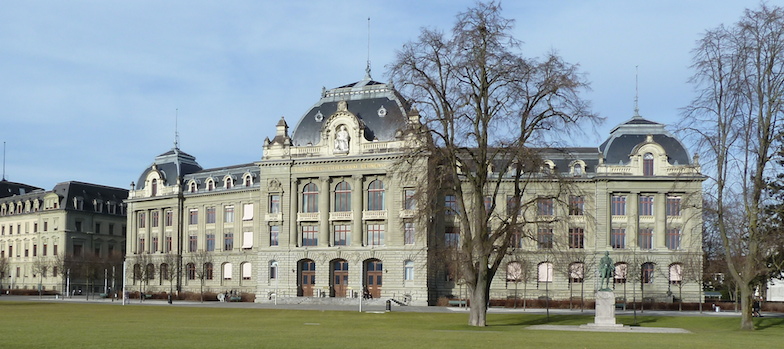
This is only the third EASR conference I will have attended (previously Budapest [2011] and Liverpool [2013]) and I am looking forward to not worrying about a presentation, to representing the BASR at various committee meetings, and to flying the flag for the RSP, along with Sammy Bishop and Tom White.
With the help of the inestimable Moritz Klenk, I shall (hopefully) be recording four podcasts for the RSP: with Susannah Crockford, Carmen Becker, Atko Remmel, and Marchus Moberg & Sofia Sjö. Hopefully we will also get a roundtable discussion recorded, and with the others’ help the RSP should be sitting around 10 podcasts up for the beginning of our 2018-2019 academic year.
Worldviews in World View: Particularizing Secularism, Secularity and Nonreligion
5-6 July 2018, King’s College London. This is the first NSRN conference I will have been able to attend since 2012. I am not presenting, but am attending in a research capacity, as well as in my role as Co-Director of the NSRN. This conference is highly relevant to my current research, and I may even get a podcast or two recorded for the RSP.
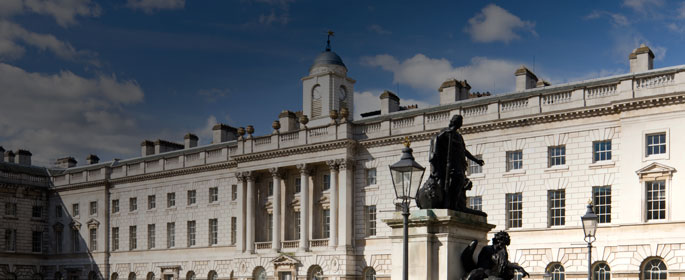
BSA SocRel Annual Conference 2018 on “Religion and Education.” University of Strathclyde, 10–12 July 2018.

I am still swithering about whether to attend or not, but as this is just a short journey away (Glasgow) and as I haven’t been to a SOCREL conference since 2016, this would be a good opportunity to catch up with some colleagues, do a bit of networking, and record a podcast or two. Watch this space.
Borders and Boundaries: ‘Religion’ on the Periphery
Joint Conference between the British Association for the Study of Religions and the Irish Society for the Academic Study of Religions, 3–5 September 2018, Queen’s University, Belfast
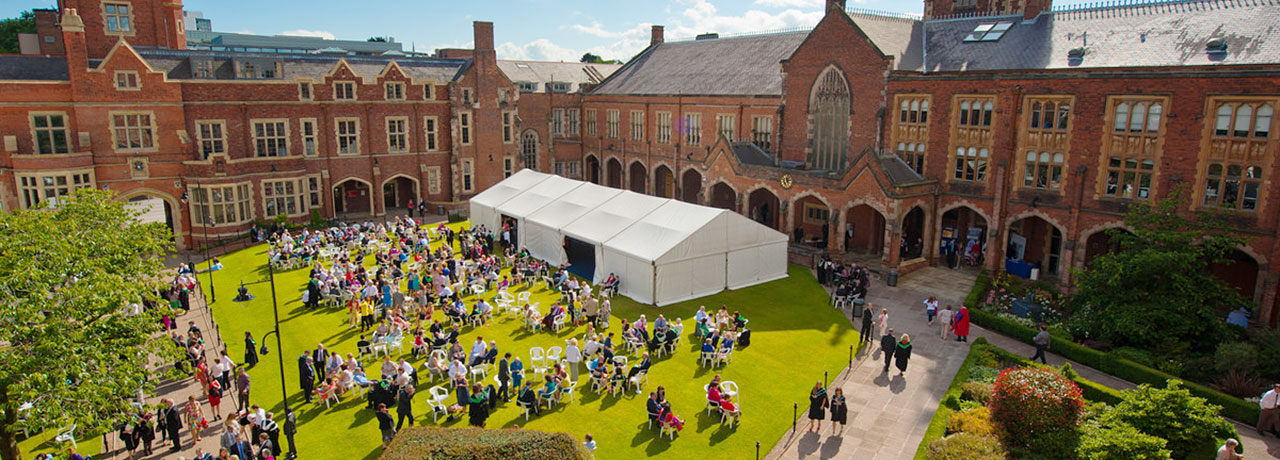
I am one of the co-organizers of this conference, so my attention shall be spread fairly thin. No podcasting for me! However, in addition to delivering the Treasurer’s report to the BASR AGM, and welcoming my real-life dad to a conference for the first time, I have also co-organized a double panel session on ‘Unbelief Across Borders‘ featuring Josh Bullock, David Herbert, Lois Lee, James Murphy, Rachael Shillitoe, Anna Strhan and Hugh Turpin. The panel abstract is pasted below, and the full session/s details are here are a PDF.
In recent years, scholars have highlighted the need to understand religious ‘unbelief’, nonreligion and secularity in settings beyond the boundaries of the region that generated these concepts and discourses, namely, the West. Yet there is also a wider need to understand how ‘unbeliefs’ and experiences of ‘unbelieving’ are regionally contingent, within the West as well as beyond. Atheism, and other forms of so-called unbelief in the West itself vary intra-nationally by region, as well as by country. As noted in the call for papers for this conference, the negotiation between different religious lifeworlds, worldviews, constructs and dogmas takes place across perceived borders, whether real or imagined. Thus, the content, style and social experience of ‘unbelieving’ is likely to vary according to context. It might vary, for example, according to the prevalence and prominence of inherited systems of supernatural belief in the local context, which might impact the integrity of the ‘sacred canopy’; or according to the nature of the local religious tradition(s) (whether Protestant, Catholic, Orthodox Christian; Sunni or Shi’a Muslim, or combination of traditions, etc.). The social experience of being an atheist or agnostic in rural Poland (with a relatively homogeneous and politicised Catholic culture) is likely to be different to that in Poland’s urban centres, as well as from an unbeliever in, say, the Netherlands (with its mixed, Catholic-Protestant heritage, advanced secularisation, history of pillarization etc.). This double panel explores the regional contingencies of being and articulating ‘unbelief’ of various kinds. It also investigates the potential of comparative approaches to generate new knowledge and (much needed) new theory in the study of unbelief, nonreligion and secularity, and provides an opportunity to explore the limits and margins, centres and peripheries of ‘unbelief’ in comparative local and international perspective.
Finally – for now – I will be attending and presenting at the EUREL, Formatting Nonreligion in Late Modern Societies – Institutional and Legal Perspectives conference, University of Oslo, 26-27 September 2018.
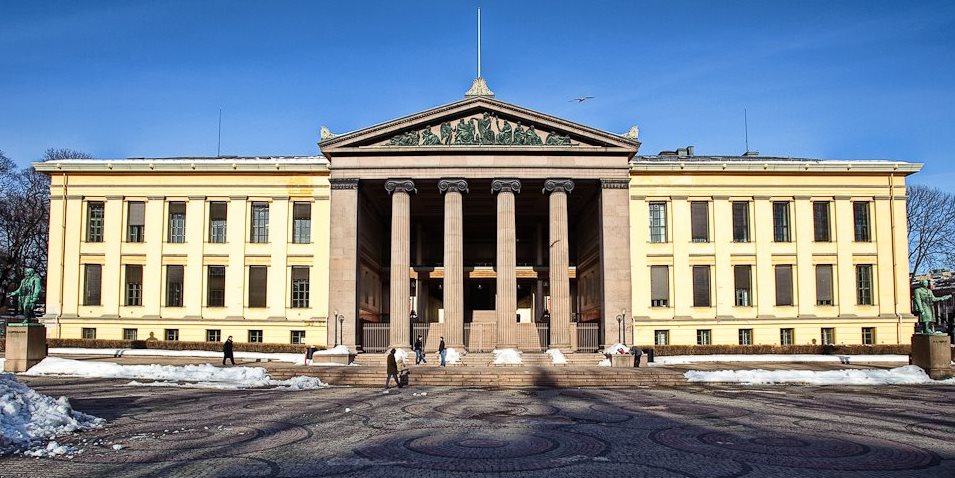
Paper title: Non-Religion as Religion-Related Discourse: An Empirical Invitation
I will begin by outlining and arguing for my preferred understanding of ‘non-religion’ as a form of religion-related discourse. Drawing upon extensive fieldwork in Edinburgh, and developing comparative work between Northern Ireland and Scotland, I will make three key points. First, the local and national particularity of a religion-related discursive field serves as more than a mere context or backdrop but actively participates in its construction, and thus in the positioning of phenomena and social actors as ‘religious’ or ‘non-religious’. Second, in many cases the ‘non-religious’ is implicit in the subject position of those actors utilizing religion-related discourse, and thus we should avoid taking naïve discourses on the insubstantial nature of ‘secularity’, ‘non-religion’ etc. at face value. Third, religion-related categories frequently serve as ‘power categories’, meaning that being positioned as ‘religious’ or ‘non-religious’ means more in certain circumstances than it does in others.
Using empirical examples, I will emphasize that ‘religion’ exerts enormous power in certain contexts in contemporary society, and that therefore certain positions are placed into conversation with religion, and might contextually considered to be ‘non-religious’. This approach avoids reifying ‘religion’ as in some way unique, whilst also fully incorporating religion-related subject positions—including the ‘non-religious’—into the academic study of religion. It is my hope that such work can act as a bridge between two increasingly entrenched positions in the contemporary study of religion-related phenomena—one that is interested in understanding ‘religion in the real world’, and the other in understanding the discursive processes by which that statement makes sense.
On pedestrian crossings, censuses, and a sense of agency
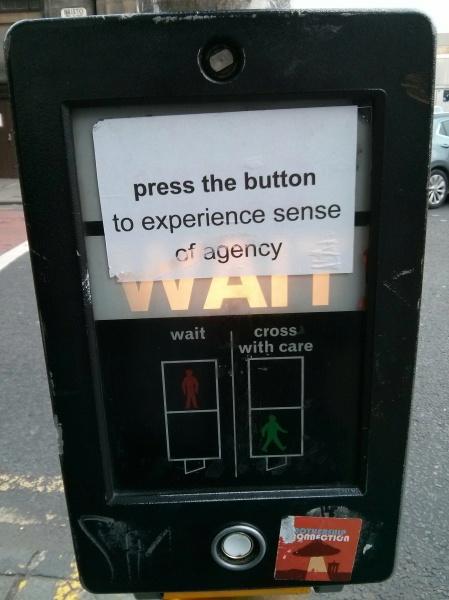 A few months back, I wrote a post for Culture on the Edge, prompted by my frequent encounters with this sticker at a particular pedestrian crossing. In the post, I discuss the work performed by the buttons at pedestrian crossings and how it links with the work performed by multiple choice surveys, before concluding (perhaps pessimistically) that perhaps all ‘we’ can really hope for is, indeed, that sense of agency… rather than ‘agency itself’.
A few months back, I wrote a post for Culture on the Edge, prompted by my frequent encounters with this sticker at a particular pedestrian crossing. In the post, I discuss the work performed by the buttons at pedestrian crossings and how it links with the work performed by multiple choice surveys, before concluding (perhaps pessimistically) that perhaps all ‘we’ can really hope for is, indeed, that sense of agency… rather than ‘agency itself’.
Below you’ll find the first paragraph of the post, and if it stimulates your interest I hope you will read more.
For the past few months, as I make the fifteen-minute walk between my residence and my office in Edinburgh, I have interacted with a particular pedestrian crossing. You know the kind with a button which we are supposed to dutifully press and then wait until the signal (here in the form of a somewhat generic, slim, green, male stick figure) gives us permission to cross the road? Some enterprising individual has taken this ubiquitous element of the Edinburgh cityscape and added their social commentary, in the form of a sticker reading ‘press the button to experience sense of agency.’ And this got me thinking…
After World Religions
I am entering into the spirit of reviving this blog… making it my own. And part of that revival is, I think, to point to stuff that’s happened recently. Those who know me probably know about the Religious Studies Project and my amazing colleague David Robertson. If you don’t, or even if you do, please check out this podcast…
It’s one of those delicious moments where you realise that your work is a) worth being engaged with b) is being engaged with… This book (saving my own blushes) is unequivocally good… and so timely (thanks Russell)
Why I am voting to REMAIN in the EU
On September 10 2014, I wrote a post titled “Why I am voting YES to Scottish Independence.” You can read it for yourself if you like, but I am always encouraged when I look back on it to see that I completely agree with everything I wrote back then. That vote didn’t go the way I wanted it to go and now, 21 months or so later, I find myself much busier (my Ph.D. thesis is due in on 30 September), a paid up member of the Scottish Green Party (I joined the day after the Scottish Independence referendum, on 19 September 2014), with another referendum coming up – this time on whether the UK should remain in the European Union.In the post below, I use some of my tweets over recent months to articulate my views on the matter.
My reasons for wanting to the UK to remain in the EU are broadly similar to my reasons for wanting Scotland to leave the UK. #noparadox
— Chris Cotter (@the_cotter_man) May 16, 2016
Some people might think it is an oxymoron for someone to want Scotland to leave the United Kingdom, but yet want the United Kingdom to remain in the European Union. However, I think that this view comes from the stereotypical assumption that anyone who wanted Scotland to leave the UK must be in some way a nasty flag-waving bigot who loves destroying cherished institutions that have existed from centuries – if this was the case, why wouldn’t the same uncritically (and this word is important) nationalistic people want to break away from another larger body?
First off, let’s get it out there – I do not like what the UK as an institution stands for. I don’t know that I ever really have since I have been ‘politically conscious’. This is not to say I don’t like the people who make up the UK. Or ‘other’ nations in the UK. But, as an institution, the UK is not something I am proud of. The chance to reform the UK as a whole, starting from the ground up, was a large part of my wanting to leave the UK. Similarly, the prevalent attitude in the UK towards the EU as I perceive it is not something I like.
I don’t understand why the EU put up with the belligerent, uncooperative, self-important, “dreams of Empire”-driven parasite that is the UK
— Chris Cotter (@the_cotter_man) June 3, 2016
Personally, I am of the opinion that many of the ‘problems’ that UK citizens perceive with the EU are in no small part due to the regnant exceptionalist attitude, epitomized by the EU rebate negotiated by Thatcher, and David Cameron’s recent attempts at gaining ‘concessions’. The relationship that the UK currently has with the EU is not the one I want… but it’s better than the prospect of leaving. As Maggie Chapman, co-convener of the Scottish Green Party has recently much more eloquently put it:
Firstly, and perhaps most importantly, we must consider our current political context. In Scotland, and in the UK, a vote to leave will be a victory for the right. The momentum in this campaign comes from and sits with a right wing leave case that says we must shut our borders, that we must reinvigorate the Empire, that we must make Britain great again. That sends shivers down my spine.
It means going back to the days of the Raj, and a colonial project in Africa that was profoundly racist. And in the 100th anniversary year of the Easter Rising, which had everything to do with challenging imperial and anti-democratic monarchical power, we need to reclaim some of the collective solidarity of that century-old republican movement.
The right wing case to leave is the dominant narrative, presented by people who think that imperialism is the highest form of capitalism, and that that is a good thing. However much we might wish it not to be the case, siding with these people means siding with those who do not not believe that the world has changed since the 19th century. As an immigrant from post-colonial Southern Africa, that horrifies me.
On another note…
As with the referendum on Scottish Independence, I am so sick and tired of this EU Referendum being made to be about economics.
— Chris Cotter (@the_cotter_man) May 12, 2016
I am fed up hearing from business people about their opinions on the EU. I could not care less what money has to say.
— Chris Cotter (@the_cotter_man) May 19, 2016
And
No economic argument could sway me to leave the EU… Money comes and goes, but connections and pan-nation politics are worth saving!
— Chris Cotter (@the_cotter_man) May 12, 2016
For me, the EU is about so much more than money. Money comes and goes, and in our post-Empire, G7, G8, G20, G-etc. privileged position, we really don’t need to worry about it. Whatever happens, the financial wizards will magic up some other money, or find someone else to exploit for it. But the EU holds us to account. We put in money – much less than we should, of course – and it comes back with progressive conditions. Protecting the environment. Protecting workers’ rights. Regenerating areas that badly need it. And so on. But even more than that, the EU is an international exercise in co-operation, flying in the face of current ideologies of ‘protecting one’s own’.
Bloomberg says you should vote for what you think is best for you and your family. I disagree. We need to think bigger. About humanity.
— Chris Cotter (@the_cotter_man) May 19, 2016
This altruism, as I see it, should extend to migrants – whether from the EU or not. And rather than picking on those who have left their homes to come to the UK to work, perhaps we should be blaming those in power – politicians, employers etc. – for the lack of jobs, the poor state of the economy, growing inequality, stresses on our welfare system etc. I’ve written before about the need to defend the ‘wrong-type of immigrant‘, so I shan’t retread things here. But, another point to make is that
Maybe helping to address the inequality between EU countries would help address people’s reasons for migrating? UK should give MORE not less
— Chris Cotter (@the_cotter_man) June 3, 2016
Finally, I think the EU is great for Green causes…
I’m #GreenBecause I believe in a politics of optimism, and in making sacrifices now that will benefit people and planet for generations
— Chris Cotter (@the_cotter_man) May 4, 2016
Maggie makes the Green argument much better than I could in her post.
I’m not naive. Much as I know things might not have worked out for the better if Scotland left the UK, so too I know that remaining in the EU doesn’t automatically make things better. But the EU holds the UK to account. It holds the Tories to account. It holds London to account. It allows progressive legislation to be pushed through and then rhetorically blamed on an outside force – “Oh, we’d totally lift fishing quotas, but it’s that EU making us do it” etc.
Don’t leave the UK at the mercy of the Tories, UKIP and their ilk. Don’t turn immigrants into the bad guys. Please… if you have a vote in this referendum… vote for the UK to remain in the EU.


